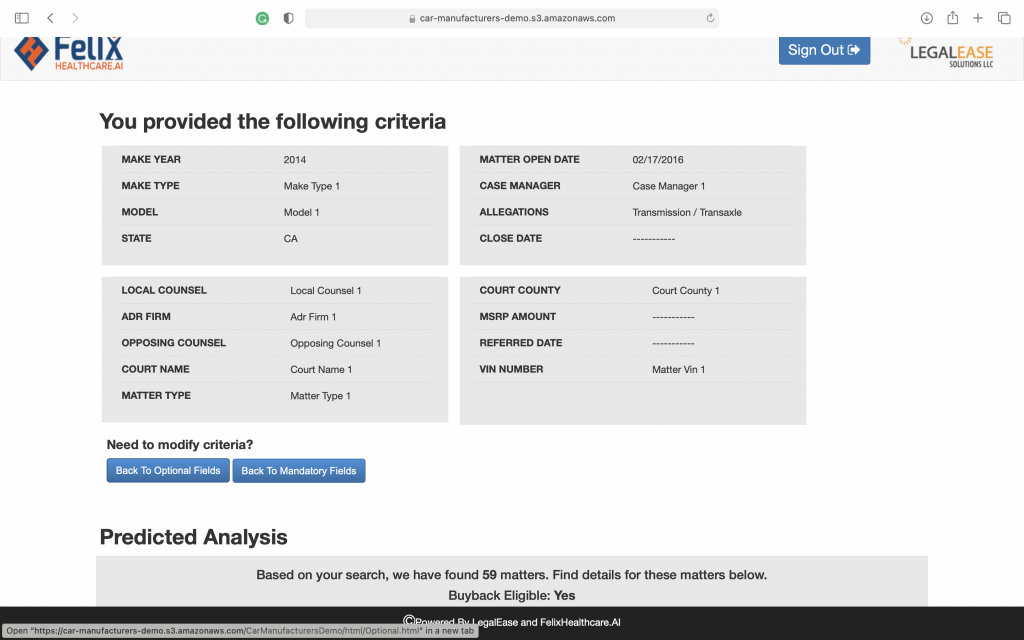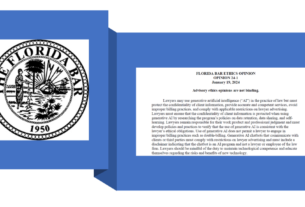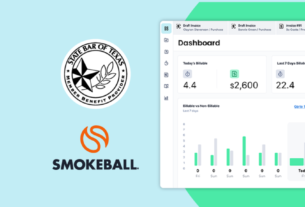A new product uses historical data, artificial intelligence and predictive analytics to value cases and predict outcomes in automobile warranty litigation, with the goal of helping manufacturers resolve Lemon Law and warranty claims more accurately, more quickly, and at lower cost.
The product, iPAT, developed by LegalEase Solutions in partnership with FelixHealthcare.AI, developer of the underlying AI technology, uses predictive analytics to help reduce litigation time and associated legal expenses in auto warranty cases, while also helping to ensure that these cases are more consistently and objectively valued.
Although the product is not yet generally available on the market, it is being tested with a major automobile manufacturer and also by a large law firm that represents manufacturers.
When iPAT does reach the market, it will be available only in California to begin, but LegalEase plans eventually to roll it out in all 50 states.
The market is potentially huge, given that, in 2019, automotive OEM manufacturers paid $49.4 billion on warranty claims worldwide, and in 2020, they paid $10.72 billion in just the U.S. — with California accounting for more than half that payout.
Replacing ‘Gut Checks’ with Data
I was recently given a briefing on and demonstration of the product by Tariq Hafeez, LegalEase president and cofounder; Tariq Akbar, LegalEase CEO; Christopher Schmidt, LegalEase project lead attorney; Naseeha Machingal, client success and partnerships lead at LegalEase; and Vaidyanatha Siva, FelixHealthcare.ai founder and CEO.
The problem iPAT addresses is that case assessment in auto warranty cases remains largely a manual process. Typically done by case managers working for manufacturers’ in-house legal departments or outside firms, these assessments are still based primarily on the manager’s own institutional knowledge.
“Valuations of cases and decisions of whether to settle, or of how far to take a case, are done on a gut check,” Schmidt explained.
iPAT brings data analytics into that equation to help manufacturers make more informed decisions about claims. It collects historical litigation data from the manufacturer and then uses that data to build a predictive analytics engine that provides predictions on settlement amounts and buyback eligibility.
The software uses clustering to group cases that have similar characteristics — including characteristics specific to the vehicle as well as extraneous characteristics, such as the judge or jurisdiction. In total, it analyzes cases using some 150 different variables.
“If there are claims about the particular make, model, or car, there are clusters of these, and they could be based on the design of the car, or the engine, or extraneous factors, such as opposing counsel, judge, jurisdiction, etc.,” said Siva of FelixHealthcare.ai. “So what we’ve done is clustered the types of litigation into those that have similar characteristics and then we predict based on those.”
The result is that iPAT allows manufacturers to determine buy-back eligibility under California law in order to resolve potential warranty breach litigation before it is even filed. If a lawsuit is filed, iPAT provides guidance on settlement offers, including civil penalties and attorneys’ fees.
Predicting Case Outcomes
Using the tool is straightforward. At the tool’s front screen, the case manager can either enter a matter number that prefills data about the vehicle, or the manager can search by vehicle and matter details, including by the specific allegations made in the case, as well as the court and counsel.
The Felix AI then analyzes the data and presents a series a charts predicting outcomes for the case and offering a buy-back settlement value, including any likely civil penalties and attorneys’ fees. The main chart includes a green bar that indicates the likely settlement value with 95% certainty, and then values ranging above and below that in yellow and red to indicate lesser degrees of certainty.
The tool also shows the top factors (or variables) that the AI considered in arriving at its predictions and the weights it gave to those factors.
It also provides a list of the specific cases it found that are relevant to the matter at hand. The case manager can refine the list of cases by filtering based on specific allegations.
“The real value here is the early analysis,” Schmidt said. “In California, you can try to cut off attorneys’ fees with an early offer of judgement, so this can let you act early.”
LegalEase said that the roadmap for future development of the product includes bringing in more data from other sources, with the next version of iPAT slated to include data from repair centers and state courts.
“iPAT makes the process of managing warranty breach litigation in California far more cost-effective and, more importantly, predictable,” said Akbar, LegalEase’s CEO.
“By using iPAT, OEMs will eliminate nagging worries about whether or not they are overpaying to settle these claims. It will also drive down plaintiff fees and civil penalties, which is significant given the egregious amounts often sought by plaintiffs’ counsel.”



